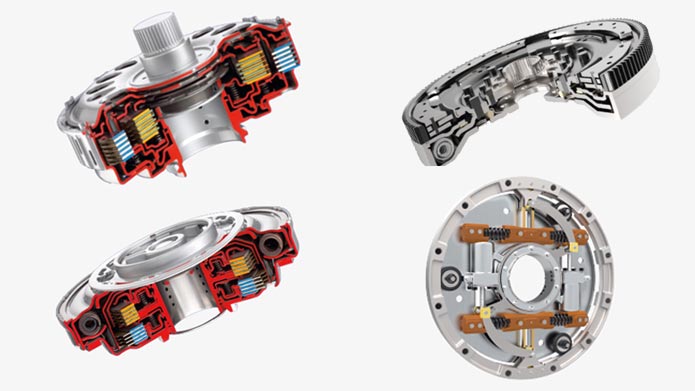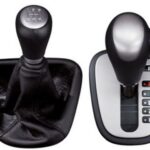1. Clutches & Bands – These are friction devices that drive or lock planetary gear sets members. They are used to cause the gear set to transfer power. In other words, they are used to hold a particular member of the planetary gear set motionless, while allowing another member to rotate, thereby transmitting torque and producing gear reductions or overdrive ratios. These clutches are actuated by the valve body their sequence controlled by the transmission’s internal programming.
2. Torque Converter – It is a hydraulic device that connects the engine and the transmission. It takes the place of a mechanical clutch, allowing the transmission to stay ‘in gear’ and the engine to remain running whilst the vehicle is stationary, without stalling. A torque converter is a fluid coupling that also provides a variable amount of torque multiplication at low engine speeds, increasing “breakaway” acceleration.

3. Valve Body -The valve body is the control centre of the automatic transmission. It contains a maze of channels and passages that direct hydraulic fluid to the numerous valves. Depending on which gear is selected, the manual valve feeds hydraulic circuits that inhibit certain gears. For instance, if the shift lever is in third gear, it feeds a circuit that prevents overdrive from engaging. The valve body of the transmission contains several shift valves. Shift valves supply hydraulic pressure to the clutches and bands to engage each gear. The shift valve determines when to shift from one gear to the next


